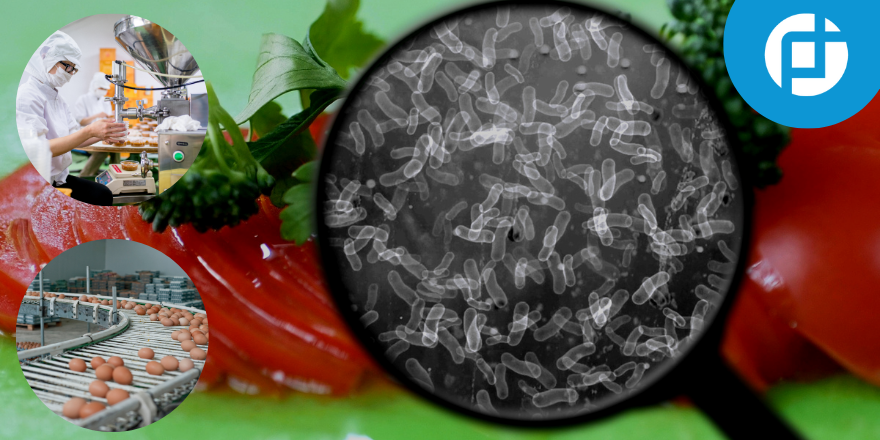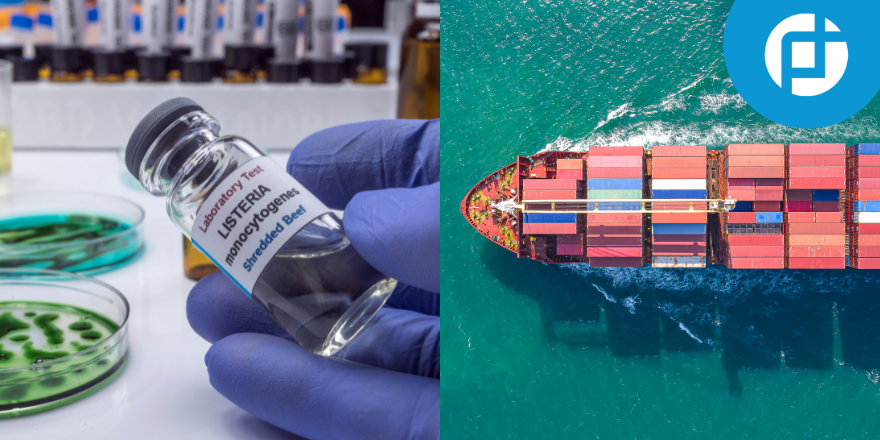Did you know that in 2023 alone, the CDC reported over 1,600 cases of Listeria infections in the U.S.? With such significant numbers, it's clear why food safety remains a top priority.
Recently, food safety concerns have been front and center with reports of E. coli contamination in supermarket sandwiches and a major recall of deli meats due to Listeria. These incidents highlight the urgent need for robust safety measures in food manufacturing.
For example, Boar’s Head recently had to recall deli meats because of Listeria contamination. This pathogen can cause serious issues across various types of food processing, including dairy, meat, poultry, produce, and eggs. The lack of thorough inspections in some facilities has been a major factor, emphasizing the need for effective preventive measures.
What’s the Deal with Listeria?
Listeria monocytogenes is a troublesome bacteria that can contaminate several types of food processing:
-
Dairy: Found in raw milk, soft cheeses, and ice cream.
-
Meat and Poultry: Present in raw or undercooked poultry, sausages, hot dogs, and deli meats.
-
Produce: Can be in raw or processed vegetables and fruits, growing even at low temperatures.
-
Eggs: Though less common, it has been detected in egg-processing equipment.
-
Pet Food: Raw pet food can also be affected.
The Impact on the Supply Chain and Food & Beverage Industry
Listeria contamination poses significant risks that extend beyond health concerns, deeply impacting the entire supply chain, particularly in the food and beverage industry. When contamination is detected, production lines often face halts for comprehensive cleaning, testing, and re-inspection, which disrupts the manufacturing process and delays product availability. These interruptions not only affect the flow of goods but can also result in substantial financial losses.
The average cost of a food recall is approximately $10 million, encompassing both direct costs like product retrieval and disposal, and indirect costs such as brand damage and legal fees. Without advanced planning and scheduling, you risk losing hours each week to manual scheduling errors, leading to significant downtime and increased costs. Imagine the cost of downtime—our software ensures your operations run smoothly, avoiding costly mistakes.
The resulting supply chain disruptions lead to market shortages, making it challenging for retailers to maintain stocked shelves, which undermines consumer trust. Facilities that have dealt with contamination often encounter heightened scrutiny and stricter inspections from regulators, further slowing down operations and increasing overall inefficiency and costs.

Comprehensive Measures to Prevent Listeria Contamination
Maintain Proper Temperature Control:
Ensure that refrigeration units are consistently at or below 40°F (4°C) and that frozen products are stored at 0°F (-18°C) or lower. Listeria monocytogenes can grow at temperatures as high as 45°F (7°C), so maintaining proper refrigeration is crucial for preventing bacterial growth.
Implement Strict Hygiene Practices:
Enforce rigorous handwashing protocols and sanitation practices among all food handlers. Regularly clean and sanitize all surfaces, utensils, and equipment to avoid cross-contamination. This includes proper cleaning of cutting boards, knives, and other food contact surfaces.
Ensure Proper Food Processing and Handling:
Collaborate with all partners in the supply chain to ensure adherence to stringent food processing and handling standards. This includes verifying that raw ingredients are processed and cooked according to established guidelines to eliminate listeria bacteria. Ensure that ready-to-eat products are handled, stored, and transported under conditions that prevent contamination, and strictly monitor expiration dates to avoid distributing expired products.
Monitor and Control Supply Chain Conditions:
Work closely with suppliers to ensure that they adhere to strict food safety standards. Regularly audit and inspect raw materials, and ensure that transportation conditions, including temperature and hygiene, meet regulatory requirements.
Implement Effective Pest Control:
Prevent pest infestations in food storage and processing areas, as pests can carry listeria bacteria. Regularly inspect facilities for signs of pest activity and implement a robust pest control program to address any issues promptly.
Educate and Train Staff Regularly:
Provide ongoing training for all staff members on the risks of listeria and best practices for preventing contamination. This includes educating them on proper food handling, storage techniques, and the importance of maintaining a clean working environment.
Streamlined Food Supply Chain with Advanced Planning and Scheduling Software
Here’s where advanced planning and scheduling (APS) software really makes a difference. Good planning is everything when it comes to food safety. APS software helps keep production schedules on track and catches potential issues before they become bigger problems. With real-time data and predictive insights, it ensures that safety standards are met without the usual headaches. It’s all about having the right tools in place to manage processes smoothly and keep everything running safely and efficiently.
Key Benefits of Advanced Planning and Scheduling Software for Food Safety and Supply Chain Efficiency
Optimized Production Scheduling: APS software ensures efficient and timely production schedules, reducing delays and improving response to contamination risks.
Real-Time Data and Predictive Insights: Provides real-time data and forecasts to anticipate and address potential issues before they escalate, enhancing safety and efficiency.
Efficient Crisis Management: Facilitates quick decision-making and effective recall management by offering detailed visibility into the supply chain.
Improved Compliance and Reduced Costs: Helps maintain safety standards, streamline regulatory compliance, and minimize recall costs and waste.
.png?width=777&height=368&name=verheffing_listeria_fig1_0%20(1).png)
National Reference Center (NRC) for Listeria monocytogenes
Manual scheduling delays can lead to serious risks, including legal challenges tied to safety lapses. It's important to minimize these vulnerabilities and ensure that operations run smoothly, reducing the likelihood of compliance issues and potential hazards.
Advanced Planning and Scheduling software provides a robust solution for managing the complexities of the food and beverage industry and ensuring that the entire supply chain operates safely and efficiently.
Want to see how APS software can enhance your operations? Request a demo and find out how it can make a difference in keeping your facility safe and efficient.
Topics: food and beverage, Agile Production Planning, Continuous Improvement and Performance Monitoring, Food and Beverage Manufacturing, Accurate Demand Planning and Execution





















LEAVE A COMMENT